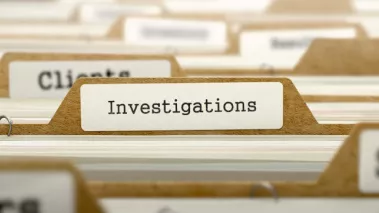Table of Contents
New DOJ Letter Threatens Campus Speech, Warns Former OCR Attorney

Free speech on college campuses was dealt a significant blow last week when the Department of Justice (DOJ) issued a findings letter against the University of New Mexico (UNM). The letter, reminiscent of the 2013 findings letter and resolution agreement with the University of Montana (proclaimed to be “a blueprint for colleges and universities throughout the country to protect students from sexual harassment and assault”), instructs UNM to adopt an unconstitutional definition of sexual harassment. In its letter, the DOJ criticized UNM’s sexual harassment policies because they:
mistakenly indicate[] that unwelcome conduct of a sexual nature does not constitute sexual harassment until it causes a hostile environment or unless it is quid pro quo. Unwelcome conduct of a sexual nature, however, constitutes sexual harassment regardless of whether it causes a hostile environment or is quid pro quo.
The DOJ, like the Department of Education’s Office for Civil Rights (OCR) before it, is counting on the unpleasant connotations of the term “sexual harassment” to keep the media and public from noticing that it is defining an enormous amount of everyday speech as sexual harassment. Did you overhear someone retelling an Amy Schumer joke about sex that you found unpleasant? According to the DOJ, that makes them a harasser—even if they only did it once and didn’t do it again after you asked. If that’s harassment, the term is devoid of meaning.
Not content, though, to simply put in place a rule that would make 99.9% of Americans into harassers at some point in their lives, the letter demands that any complaints about such speech be “investigated,” a sure way to silence huge numbers of students and professors who have better things to do than attend inquisitions before Title IX administrators who have the ability to ruin their academic careers and lives. And as though these investigations into clearly protected speech are not enough, the UNM findings letter goes further than simply requiring these inquisitions. It also declares:
A school must protect the complainant and ensure his or her safety as necessary, including taking interim steps before the final outcome of any investigation. The school should take these steps promptly once it has notice of a sexual harassment allegation and should provide the complainant with periodic updates on the status of the investigation.
As Hans Bader, former attorney for OCR, notes in The Washington Examiner, the DOJ’s formulation has broad, disturbing implications:
[U]nder [UNM]’s Title IX policy, it has a practice, consistent with Education Department “guidance,” of imposing “interim measures” against accused people prior to any finding of guilt or innocence. That includes “issuing interim suspensions and no-contact orders for complaints of student-on-student harassment.” While temporary suspensions from school are usually only mandated for accused people who are viewed as a potential threat to physical safety (like accused rapists), it is common to impose milder but still quite burdensome “interim sanctions” on less dangerous people accused of sexual harassment, such as “no-contact orders” and orders to stay out of libraries, study lounges, and other common areas used by a complainant (including kicking the accused out of a dorm he shares with his accuser).
If exclusion from key areas on campus can be triggered by a sexual harassment complaint over nothing more than a dirty joke or a criticism of feminism, the chilling effect will be huge.
FIRE supports an institution’s ability to issue interim measures on a case-by-case basis, as may be appropriate under specific circumstances. But combining the obligation to issue interim measures with the wholly subjective definition of sexual harassment demanded by the DOJ is a recipe for censorship.
FIRE often uses the example of jokes to illustrate the perniciousness of attempts to censor constitutionally protected speech, because it’s a simple and universal illustration that anyone can understand. But people should not be deceived into thinking that investigations into alleged sexual harassment will mostly be confined to “dirty jokes” or sex talk that the average American might care little about. The DOJ’s mandate to investigate all complaints under an entirely subjective definition of sexual harassment—even if the speech prompting the complaint is protected by the First Amendment—will result in more unjust and unnecessary investigations like the lengthy one Professor Laura Kipnis suffered. Last year, Northwestern University investigated Kipnis for allegedly violating Title IX and retaliating against students by writing an op-ed criticizing how Title IX is being interpreted and enforced and by questioning “sexual paranoia.” As Bader points out:
The mere existence of such speech-chilling investigations can violate the First Amendment under federal appeals court rulings like White v. Lee (2000), which ruled that an eight-month civil-rights investigation of what turned out to be protected speech violated the First Amendment by chilling speech. The Supreme Court’s decision in Bantam Books v. Sullivan (1963) also makes clear that even a practice of referring speech for investigations can violate the First Amendment.
These are just a few of the problems presented by the DOJ’s findings letter to UNM. Keep checking The Torch for more of our coverage as we explore its effects in greater depth.
Recent Articles
Get the latest free speech news and analysis from FIRE.

FIRE's 2025 impact in court, on campus, and in our culture

The trouble with banning Fizz

VICTORY: Court vindicates professor investigated for parodying university’s ‘land acknowledgment’ on syllabus
